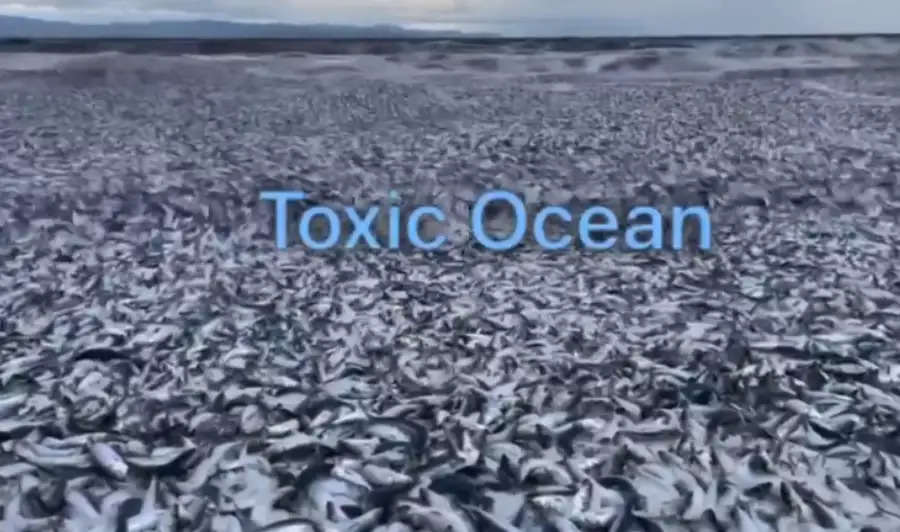"Environmental Catastrophe Unfolds: Thousands of Tons of Dead Fish Found on Japan's Northern Coast due to Radioactive Contamination"
"Massive Die-Off Raises Concerns Over High-Risk Pelagic Fisheries and Urgent Need for Addressing Radioactive Pollution in Oceans"

- Thousands of tons of dead fish discovered on the northern coast of Japan, prompting concerns over radioactive contamination and its impact on marine life.
- High-risk designation for pelagic fisheries in Japanese waters raises questions about their suitability for human consumption.
- Ongoing radiation pumping into the ocean poses severe threats to marine ecosystems, leading to genetic mutations, reproductive issues, and disruptions in the marine food chain.
- The distressing event underscores the urgent need for global action to address pollution in all its forms and safeguard the health of the planet.
In a grim environmental revelation, thousands of tons of dead fish have been discovered on the northern coast of Japan, signaling a catastrophic event linked to radioactive contamination. The incident, which unfolded on December 7th, 2023, has raised concerns about the suitability of high-risk pelagic fisheries in Japanese waters for human consumption.
The dead sardines and mackerels were found strewn across a half-mile stretch of beach in Hakodate, Hokkaido, prompting local residents to collect and sell the fish. However, local officials quickly issued warnings against such actions, emphasizing the potential health risks associated with the dead fish.
The cause behind this massive die-off remains unknown, but officials are investigating the possibility of radiation contamination as a contributing factor. The continuous pumping of radiation into the ocean from Japan poses a severe threat to marine life, leading to genetic mutations, reproductive issues, and disruptions in the marine food chain.
This distressing event serves as a stark reminder of the far-reaching consequences of pollution, particularly in its radioactive form. The contamination not only directly affects fish and marine organisms but also has cascading impacts on the entire marine ecosystem, including species higher up the food chain and even humans who consume seafood.
While discussions about carbon dioxide (CO2) emissions remain at the forefront of environmental discourse, the incident in Japan highlights the urgent need to address pollution comprehensively, encompassing radioactive contamination. It is a critical wake-up call, urging global action to tackle pollution in all its forms and protect the delicate balance of the planet's diverse ecosystems.
The recent phenomenon of dead fish washing ashore is a distressing visual representation of the urgent need for sustainable practices and a concerted effort to combat pollution. As the planet grapples with environmental challenges, addressing pollution becomes paramount to securing a sustainable and healthy future for all life on Earth.
